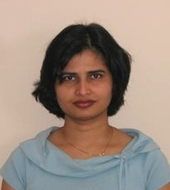Summary
Definition
History and exam
Key diagnostic factors
- chest pain
- dyspnea
- pallor
- diaphoresis
- cardiogenic shock
Other diagnostic factors
- additional heart sounds
- nausea and/or vomiting
- dizziness or lightheadedness
- distress and anxiety
- palpitations
- abnormal breath sounds
- reduced consciousness
- hypotension
- nonclassic location or nature of pain (chest pain-equivalent symptoms)
Risk factors
- smoking
- hypertension
- diabetes
- obesity and metabolic syndrome
- sedentary behavior and physical inactivity
- dyslipidemia
- chronic kidney disease
- atherosclerosis (history of angina, MI, stroke, transient ischemic attack, peripheral vascular disease)
- family history of premature CAD
- age >60 years
- cocaine use
- depression
- stent thrombosis or restenosis
- sleep apnea
- migraine
- adverse pregnancy outcomes
Diagnostic tests
1st tests to order
- ECG
- cardiac biomarkers
- blood glucose
- complete blood count
- electrolytes, BUN, and creatinine
- C-reactive protein (CRP)
- serum lipids
- coronary angiogram
Tests to avoid
- coronary artery calcium (CAC)
- coronary CT angiography
- stress test
Tests to consider
- arterial blood gas (ABG)
- CXR
- echocardiogram
Treatment algorithm
suspected myocardial infarction
hemodynamically unstable
hemodynamically stable
post-STEMI
Contributors
Authors
Mahi L. Ashwath, MD, MBA, FACC, FASE, FSCMR

Professor of Medicine and Radiology
Multimodality Imaging Director
Inaugural Reuben Jacobs Chair in Internal Medicine
UHS/UT Heart and Vascular Institute
San Antonio
TX
Disclosures
MLA declares that she has no competing interests.
Acknowledgements
Dr Mahi L. Ashwath would like to gratefully acknowledge Dr Thomas Vrobel and Dr Sanjay Gandhi, previous contributors to this topic.
Disclosures
TV declares that he has no competing interests.
Peer reviewers
Dale Adler, MD, FACC
Vice Chairman of Medicine for Network Development and Strategic Planning
Brigham and Women's Hospital
Boston
MA
Раскрытие информации
DA declares that he has no competing interests.
Deepak L. Bhatt, MD
Associate Professor of Medicine
Department of Cardiovascular Medicine
Cleveland Clinic
OH
Раскрытие информации
DLB declares that he has no competing interests.
Gregory Lip, MD, FRCP, FACC, FESC
Consultant Cardiologist and Professor of Cardiovascular Medicine
University Department of Medicine
City Hospital
Birmingham
UK
Disclosures
GL declares that he has no competing interests.
Peer reviewer acknowledgements
BMJ Best Practice topics are updated on a rolling basis in line with developments in evidence and guidance. The peer reviewers listed here have reviewed the content at least once during the history of the topic.
Disclosures
Peer reviewer affiliations and disclosures pertain to the time of the review.
References
Key articles
Thygesen K, Alpert JS, Jaffe AS, et al. Fourth universal definition of myocardial infarction (2018). Eur Heart J. 2019 Jan 14;40(3):237-69.Full text Abstract
Rao SV, O'Donoghue ML, Ruel M, et al. 2025 ACC/AHA/ACEP/NAEMSP/SCAI guideline for the management of patients with acute coronary syndromes: a report of the American College of Cardiology/American Heart Association Joint Committee on Clinical Practice Guidelines. Circulation. 2025 Apr;151(13):e771-e862.Full text Abstract
Gulati M, Levy PD, Mukherjee D, et al; Writing Committee Members. 2021 AHA/ACC/ASE/CHEST/SAEM/SCCT/SCMR guideline for the evaluation and diagnosis of chest pain: a report of the American College of Cardiology/American Heart Association Joint Committee on Clinical Practice Guidelines. J Am Coll Cardiol. 2021 Nov 30;78(22):e187-285.Full text Abstract
Edvardsen T, Asch FM, Davidson B, et al. Non-invasive imaging in coronary syndromes: recommendations of the European Association of Cardiovascular Imaging and the American Society of Echocardiography, in collaboration with the American Society of Nuclear Cardiology, Society of Cardiovascular Computed Tomography, and Society for Cardiovascular Magnetic Resonance. Eur Heart J Cardiovasc Imaging. 2022 Jan 24;23(2):e6-33.Full text Abstract
Neumann FJ, Sousa-Uva M, Ahlsson A, et al. 2018 ESC/EACTS guidelines on myocardial revascularization. Eur Heart J. 2019 Jan 7;40(2):87-165.Full text Abstract
Lawton JS, Tamis-Holland JE, Bangalore S, et al. 2021 ACC/AHA/SCAI guideline for coronary artery revascularization: a report of the American College of Cardiology/American Heart Association Joint Committee on Clinical Practice Guidelines. Circulation. 2022 Jan 18;145(3):e18-114.Full text
Reference articles
A full list of sources referenced in this topic is available to users with access to all of BMJ Best Practice.

Differentials
- Unstable angina
- Non-STEMI
- Aortic dissection
More DifferentialsGuidelines
- 2025 ACC/AHA/ACEP/NAEMSP/SCAI guideline for the management of patients with acute coronary syndromes: a report of the American College of Cardiology/American Heart Association Joint Committee on clinical practice guidelines
- ESC Guidelines for the management of acute coronary syndromes
More GuidelinesPatient information
Heart attack
High cholesterol: questions to ask your doctor
More Patient informationCalculators
Pooled Cohort Equations CV Risk Calculator
ASCVD Risk Estimator Plus
More CalculatorsVideos
Venepuncture and phlebotomy: animated demonstration
How to perform an ECG: animated demonstration
More videosLog in or subscribe to access all of BMJ Best Practice
Use of this content is subject to our disclaimer